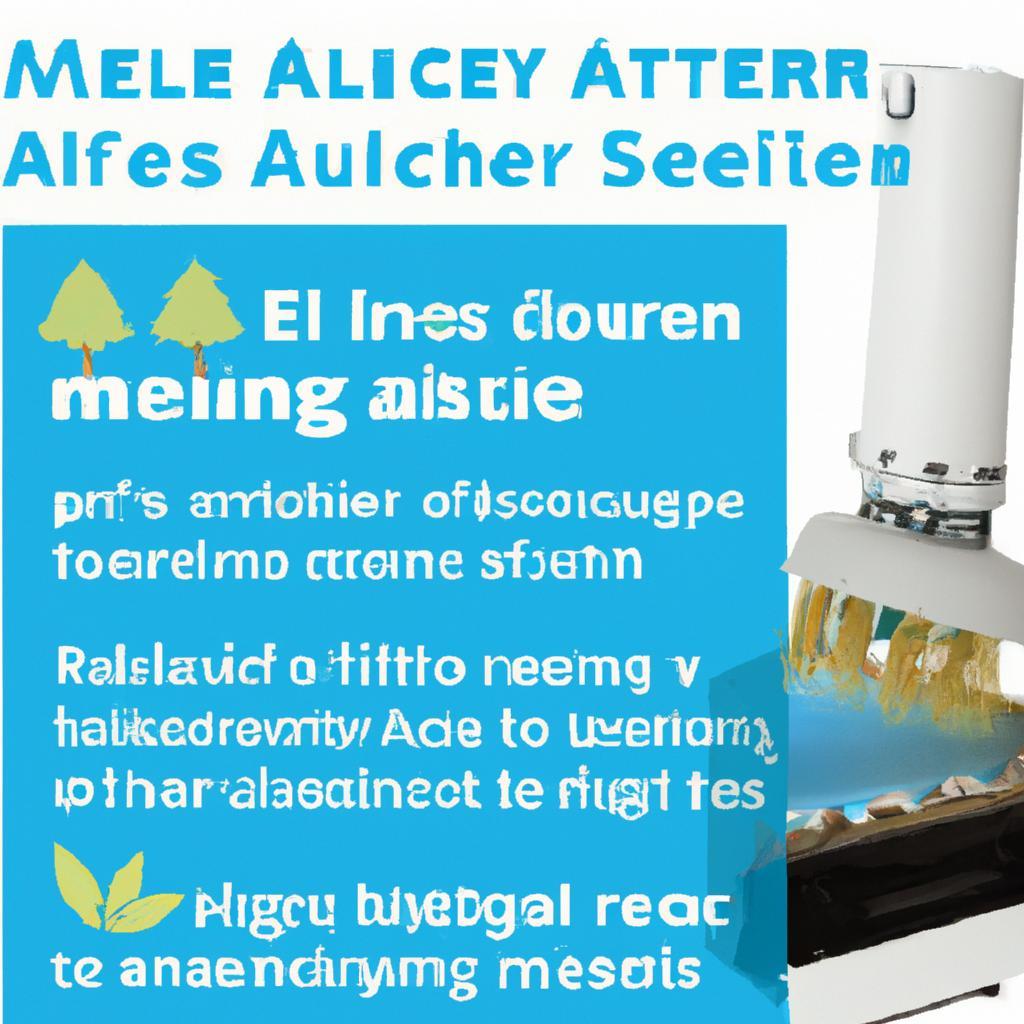Emily loved her golden retriever, Max, but every time she cuddled him, her allergies flared up. Sneezing and itchy eyes made her question her love for dogs. Determined to find a solution, she researched and discovered effective strategies: regular grooming, using air purifiers, and creating pet-free zones in her home. With these changes, Emily could enjoy Max’s companionship without the discomfort. If you’re struggling with dog allergies, take charge today! Embrace these solutions and reclaim the joy of having a furry friend by your side.
Contents
- Understanding Dog Allergies and Their Triggers
- Effective Strategies for Reducing Allergen Exposure
- Choosing the Right Products for Allergy Management
- Consulting with Professionals for Tailored Solutions
- Q&A
Understanding Dog Allergies and Their Triggers
Dog allergies can be a perplexing challenge for pet owners, often manifesting in various forms such as skin irritations, respiratory issues, or gastrointestinal disturbances. Understanding the underlying causes is crucial for effective management. Common triggers include environmental factors like pollen, dust mites, and mold, as well as food ingredients such as beef, chicken, dairy, and grains. Identifying these allergens is the first step toward alleviating your dog’s discomfort.
In addition to environmental and dietary triggers, certain substances can provoke allergic reactions in dogs. These may include:
- Fleas and other parasites: Flea saliva is a notorious allergen that can lead to intense itching and skin infections.
- Household chemicals: Cleaning products, air fresheners, and even some fabrics can irritate sensitive dogs.
- Pollens and grasses: Seasonal allergies can cause symptoms similar to hay fever in humans.
Recognizing the symptoms of allergies is essential for timely intervention. Common signs include excessive scratching, licking, or biting at the skin, ear infections, watery eyes, and sneezing. If you notice any of these symptoms, it’s important to consult with a veterinarian. They can perform tests to pinpoint specific allergens and recommend appropriate treatments, which may include antihistamines, corticosteroids, or specialized diets.
Preventive measures can significantly reduce the impact of allergies on your dog’s quality of life. Regular grooming helps remove allergens from the coat, while frequent cleaning of your home can minimize exposure to dust and mold. Additionally, consider using hypoallergenic products and maintaining a controlled environment to limit your dog’s contact with known triggers. By taking proactive steps, you can create a more comfortable living space for your furry friend and enhance their overall well-being.
Effective Strategies for Reducing Allergen Exposure
Reducing allergen exposure is crucial for managing dog allergies effectively. One of the most impactful strategies is to establish a **clean living environment**. Regularly vacuuming carpets, rugs, and upholstery with a HEPA filter vacuum can significantly decrease the presence of pet dander. Additionally, washing your dog’s bedding and toys frequently in hot water will help eliminate allergens that accumulate over time.
Another effective approach is to implement **air purification systems** in your home. Investing in high-quality air purifiers equipped with HEPA filters can trap airborne allergens, providing a cleaner atmosphere. Make sure to place these purifiers in commonly used areas, such as the living room and bedroom, to maximize their effectiveness. Furthermore, keeping windows closed during high pollen seasons can prevent outdoor allergens from entering your home.
Grooming your dog regularly is also essential in minimizing allergen levels. **Brushing your dog** outside can help remove loose fur and dander before it settles in your home. Consider using a damp cloth to wipe down your dog’s coat after walks to reduce the amount of allergens they bring indoors. Additionally, scheduling regular baths with hypoallergenic shampoos can help keep your dog’s skin and coat healthy while reducing the amount of dander they shed.
Lastly, it’s important to **designate pet-free zones** within your home. Creating areas where your dog is not allowed, such as the bedroom or specific furniture, can provide you with a safe space free from allergens. Use baby gates or closed doors to enforce these boundaries. This strategy not only helps in reducing allergen exposure but also gives you a personal retreat where you can breathe easier and enjoy a respite from allergy symptoms.
Choosing the Right Products for Allergy Management
When it comes to managing dog allergies, selecting the right products can make a significant difference in alleviating symptoms and improving quality of life. Start by considering **hypoallergenic dog food** that is specifically formulated to minimize allergic reactions. Look for options that contain limited ingredients and are free from common allergens such as wheat, soy, and dairy. This can help reduce the likelihood of triggering an allergic response while ensuring your dog receives the necessary nutrients.
In addition to dietary changes, incorporating **allergy-friendly grooming products** is essential. Choose shampoos and conditioners that are designed for sensitive skin and are free from harsh chemicals and fragrances. Regular grooming not only helps to remove allergens like dander and pollen but also promotes a healthier coat. Consider using a **de-shedding tool** to minimize loose fur around your home, which can be a significant source of allergens.
Another critical aspect of allergy management is maintaining a clean living environment. Invest in **high-quality air purifiers** equipped with HEPA filters to capture airborne allergens effectively. Regularly wash your dog’s bedding, toys, and any fabric surfaces they frequently come into contact with. Additionally, using **allergen-proof covers** on furniture can help create a barrier against dander and other irritants, making your home a safer space for allergy sufferers.
consider **supplements** that support your dog’s immune system and skin health. Omega-3 fatty acids, for example, can help reduce inflammation and improve skin condition, making your dog less susceptible to allergic reactions. Always consult with your veterinarian before introducing new products or supplements to ensure they are appropriate for your dog’s specific needs. By carefully selecting the right products, you can create a comprehensive allergy management plan that enhances your dog’s well-being and comfort.
Consulting with Professionals for Tailored Solutions
When dealing with dog allergies, seeking the expertise of professionals can make a significant difference in finding effective solutions tailored to your specific needs. Allergists, veterinarians, and pet behaviorists possess the knowledge and experience to help you navigate the complexities of allergies. They can conduct thorough assessments to identify the specific allergens affecting you or your pet, ensuring that any recommendations are based on accurate diagnoses.
Consulting with an allergist can provide insights into your individual sensitivities. They may suggest various tests, such as skin prick tests or blood tests, to pinpoint the exact allergens at play. Armed with this information, you can make informed decisions about your environment and lifestyle. Additionally, they can recommend personalized treatment plans, which may include medications, immunotherapy, or lifestyle adjustments that can significantly alleviate symptoms.
Veterinarians play a crucial role in managing your pet’s health and can help identify if your dog is the source of your allergies. They can recommend hypoallergenic dog breeds or suggest dietary changes that may reduce allergens in your home. Furthermore, they can provide guidance on grooming practices that minimize dander and other allergens, such as regular baths and brushing schedules. By collaborating with a veterinarian, you can create a comprehensive plan that addresses both your and your pet’s well-being.
Engaging with a pet behaviorist can also be beneficial, especially if your allergies are exacerbated by stress or behavioral issues in your dog. They can offer strategies to modify your pet’s behavior, making it easier to manage interactions without triggering allergic reactions. This holistic approach ensures that both you and your furry friend can enjoy a harmonious living environment, free from the discomfort of allergies. By leveraging the expertise of these professionals, you can find tailored solutions that enhance your quality of life while maintaining a loving relationship with your dog.
Q&A
-
What are the common symptoms of dog allergies?
Dog allergies can manifest in various ways, including:
- Itchy skin or rashes
- Red or watery eyes
- Sneezing or coughing
- Runny nose
Recognizing these symptoms early can help you take action to alleviate your discomfort.
-
How can I reduce allergens in my home?
To minimize allergens, consider the following strategies:
- Regularly vacuum and dust your home
- Use air purifiers with HEPA filters
- Wash your dog’s bedding frequently
- Keep your dog out of certain rooms, like the bedroom
Implementing these practices can significantly reduce allergen levels in your living space.
-
Are there specific dog breeds that are better for allergy sufferers?
Yes, some dog breeds are known to produce fewer allergens. Consider hypoallergenic breeds such as:
- Poodle
- Bichon Frise
- Portuguese Water Dog
- Shih Tzu
Choosing the right breed can make a substantial difference in managing your allergies.
-
What treatments are available for dog allergies?
There are several effective treatments to consider:
- Over-the-counter antihistamines
- Prescription medications from your doctor
- Allergy shots (immunotherapy)
- Natural remedies, such as omega-3 fatty acids
Consulting with a healthcare professional can help you find the best treatment plan tailored to your needs.
managing dog allergies is not only possible but also essential for a harmonious home. By implementing effective strategies and seeking professional guidance, you can enjoy the companionship of your furry friend without the discomfort of allergies. Take action today!




